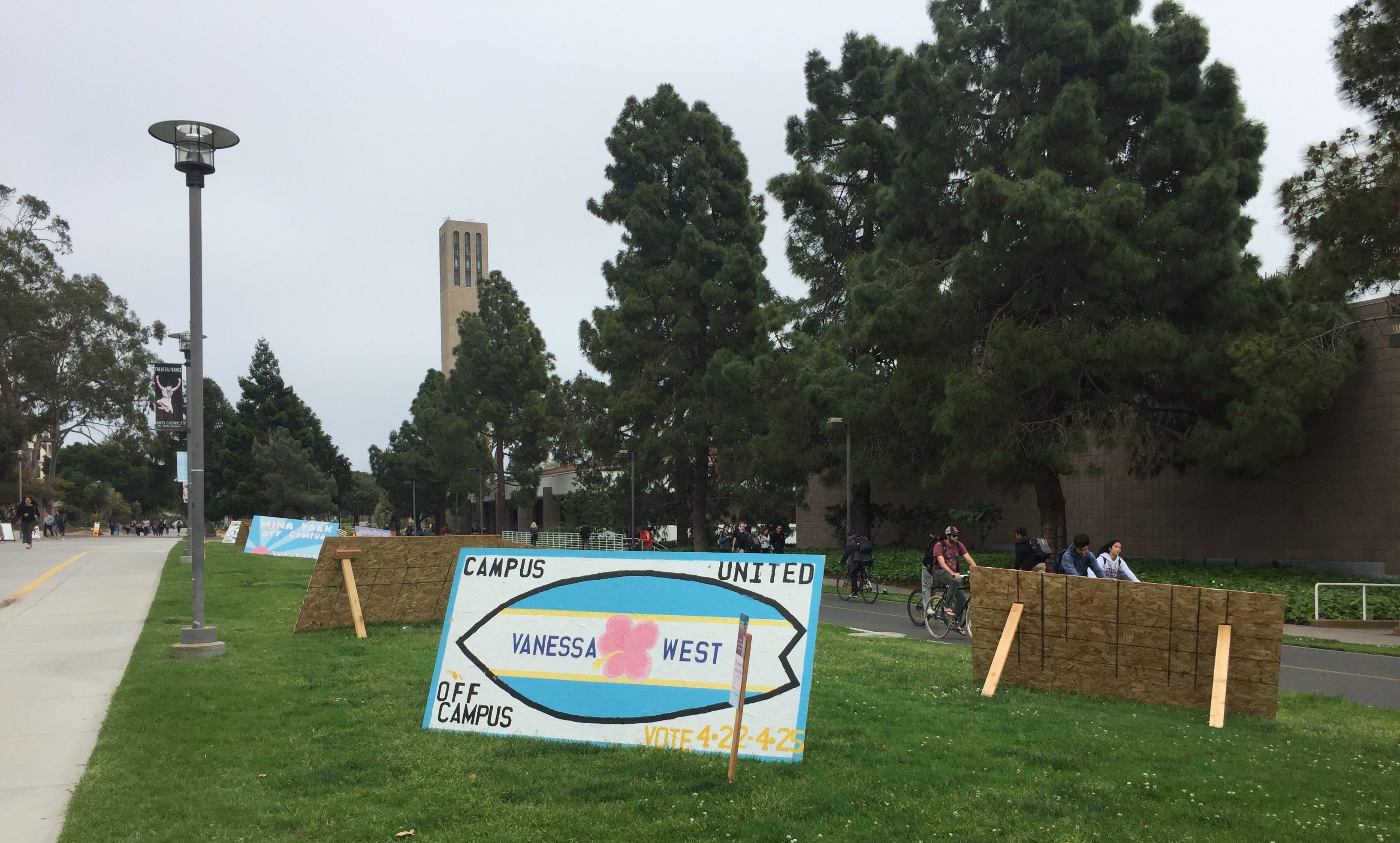The Associated Students elections concluded at the University of California, Santa Barbara on April 25 and saw lower student voter turnout than in the past two years.
Associated Students (AS) is a nonprofit organization and a department within UCSB’s campus that is responsible for relaying student opinions to the UCSB administration. Funded by undergraduate student fees, AS sponsors a number of programs on campus focusing on the areas of advocacy, enterprise, media and events, and philanthropy.
There are two main parties that compete in these elections every year: The Isla Vista Party and Campus United. This year, Campus United came out ahead and won offices in all three branches of the AS government. Allison Sir from Campus United was elected president.
In comparison to the total amount of students on campus, voter turnout among UCSB students in these elections is low. In 2018, only 39 percent of the student body voted for AS positions. This number dropped to 32 percent in the 2019 race.
Although voting for AS, which takes place through Gaucho On-Line Data (GOLD) software on students’ personal laptops, aims to be convenient as possible, some students like junior Rachel Julius and senior David Marmer lack the motivation to participate.
Despite spending four years on campus at UCSB and being approached by dozens of candidates, Marmer has only voted in one AS election, citing a general lack of interest as the cause.
“I’m aware of the results, but I don’t particularly pay attention to the electoral process,” Marmer told The College Post. “It simply isn’t something that’s on the top of my priority list.”
For other students, the sheer amount of campaigning they encounter on campus in the weeks leading up to the election can generate apathy towards the voting process entirely. This campaigning typically happens within a short period of time, and the bombardment can be a significant turn-off for student voters.
“Election week is a very hectic time to be on campus,” Julius told The College Post.
AS plays an influential role on the UCSB campus, even if students don’t understand its impact. The organization has the power to convey student opinions to the administration, as well as to institute policy changes that students call for.
With this in mind, newly elected AS president Allison Sir told The College Post that “increasing promotion and outreach earlier in the quarter would be beneficial” to increase student participation.
Similar to the structure of the U.S. government where citizens receive certain services from their tax dollars, Sir noted that where undergraduate student fees are spent can significantly shape a UCSB attendee’s overall college experience. Therefore, she stressed that students should have a vested interest in the changes that their money makes.
“Students pay around $630 every year to AS, so it is important to have a say in where that money goes,” Sir said.
In spite of these apathetic feelings on college campuses towards voting in student government elections, so far, these trends have not carried over among young people voting in U.S. elections. In fact, over the past few years as campus election turnout has declined, 18 to 29-year-olds have composed an increasing amount of the U.S. electorate.
According to the U.S. Census report on the 2018 Midterm Election, turnout for 18 to 29 year olds jumped from 20 percent in 2014 to 36 percent in 2018. This age group represented the largest voter increase in recent elections.
Although their participation rates in UCSB elections have been low, both Julius and Marmer reported voting in every U.S. election since they each turned 18.
“I’m actually a political science major and am very passionate about politics, but I simply don’t have the time nor the resolve to pay attention to AS elections,” Marmer said.
Eric Smith, a political science professor at UCSB, told The College Post that these discrepancies between campus voting and national voting can largely be attributed to their scale.
“Students don’t care much about AS elections because the stakes are so much smaller,” Smith said. “They do not see the parties as representing big issues about which they care like climate change, immigration and the Dreamers, etc.”
Especially since Donald Trump was elected into office, Smith said he has seen many students become re-energized with political fervor, exemplified in his classes when “well over a third of [his] class raised their hands when [he] asked how many of them were interested in working in politics,” far more than those who have said the same in the past.
Looking ahead, this political excitement on a national level has given Smith an optimistic view of this generations’ potential contributions to the U.S. political climate.
“The surge of activism may not extend to UCSB campus votes, but that is only because students don’t see the connections between campus politics and the bigger issues of national politics,” he added.
2016 Election a Cause of Stress for Many College Students [Study]



